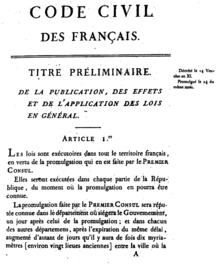Warning: The video below the fold in this article contains very disturbing pictures that may be difficult for many to watch.
It is now ten years since the the United States launched its illegal invasion of Iraq based on a string of lies about non-existent weapons of mass destruction and wild accusations of Sadaam Hussein’s connection to Al Qaeda, Osama bin Laden and 9/11, all for control of Iraq’s oil riches by one evil man, Richard “Dick” Cheney. What the US has left behind is a devastated country:
Ten years ago, Iraqis, even if they had originally opposed them, hoped that the US invasion and occupation would at least bring an end to the suffering they had endured under UN sanctions and other disasters stemming from defeat in the first Gulf War in 1991. Today, people in Baghdad complain that they still live in a permanent state of crisis because of sectarian and criminal violence, pervasive corruption, a broken infrastructure and a dysfunctional government. Many Iraqis say that what they want in 2013 is the same as what they wanted in 2003, which is a visa enabling them to move to another country, where they can get a job.
But even worse, the US left a health care crisis that will last for generations, not just the lack of care and hospitals but a legacy of horrific birth defects and cancer that has been caused by depleted uranium (DU) contamination. DU, along with lead and mercury, was contained in the armor plating and ammunition used in attacks in Iraq and Afghanistan. The high rates of double and triple cancers, as well as miscarriages, still births and bizarre birth defects, in the cities of Basra and Falluja, have been blamed on DU by researchers. A study published in the Bulletin of Environmental Contamination and Toxicology (pdf) that focused on maternity hospitals in the cities of Basra and Fallujah opens with this stunning paragraph:
Between October 1994 and October 1995, the number of birth defects per 1,000 live births in Al Basrah Maternity Hospital was 1.37. In 2003, the number of birth defects in Al Basrah Maternity Hospital was 23 per 1,000 livebirths. Within less than a decade, the occurrence of congenital birth defects increased by an astonishing 17-fold in the same hospital. A yearly account of the occurrence and types of birth defects, between 2003 and 2011, in Al Basrah Maternity Hospital, was reported. Metal levels in hair, toe-nail, and tooth samples of residents of Al Basrah were also provided. The enamel portion of the deciduous tooth from a child with birth defects from Al Basrah (4.19 lg/g) had nearly three times higher lead than the whole teeth of children living in unimpacted areas. Lead was 1.4 times higher in the tooth enamel of parents of children with birth defects (2,497± 1,400 lg/g, mean±SD) compared to parents of
normal children (1,826± 1,819 lg/g).
The article concludes:
Present knowledge on the effects of prenatal exposure to metals, combined with our results, suggests that the bombardment of Al Basrah and Fallujah may have exacerbated public exposure to metals, possibly culminating in the current epidemic of birth defects. Large-scale epidemiological studies are necessary to identify at-risk populations in Iraq. The recognition that birth defects reported from Iraq are mainly folate-dependent offers possible treatment options to protect at-risk populations.
From Mike Ludwig at Truthout, there are currently over 300 contaminated sites that are in need of decontamination.
In 2012, European researchers visited a scrap metal site in Al Zubayr, an area near Basrah in southern Iraq. A local police officer told them that the site had at one time held military scrap metal from the bloody battles waged during the American invasion. A local guard told the researchers that children had been seen playing on the scrap during that time, and both adults and children had worked disassembling the military leftovers. At one point, the guard said, members of an international organization with equipment and white suits showed up, told guards that the site was very dangerous and “quickly ran off.” [..]
There are between 300 and 365 sites where depleted uranium contamination was identified by Iraqi authorities the years following the 2003 US invasion, with an estimated cleanup cost of $30 million to $45 million, according to a report recently released by IKV Pax Christi. Iraqi authorities are currently cleaning up the sites, mostly located in the Basrah region, and 30 to 35 sites still need to be decontaminated.

 On this day in 1804,
On this day in 1804,
Recent Comments